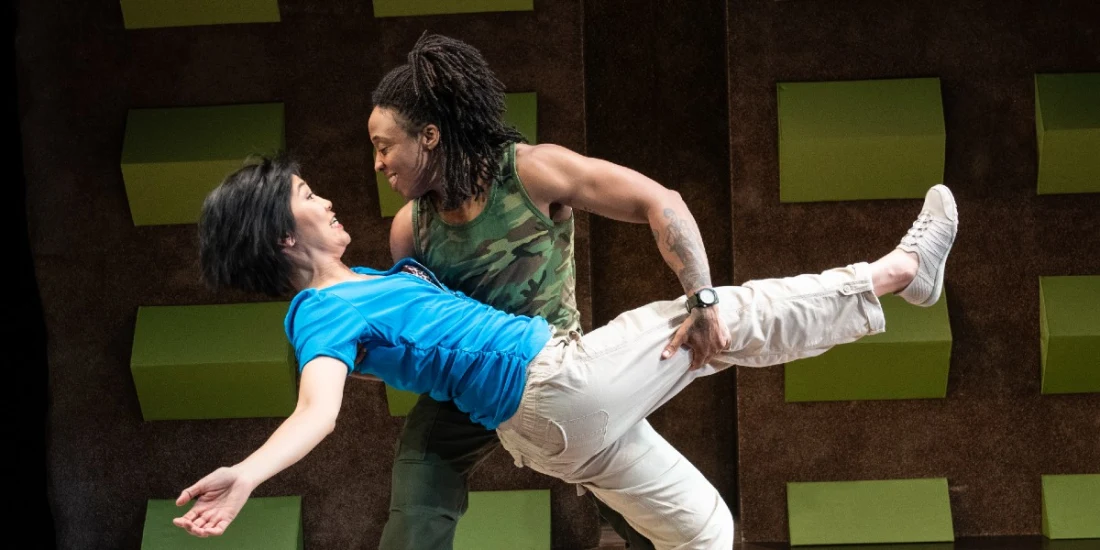'Merry Me' review — queer comedy romps through romance
Read our review of Merry Me, a world-premiere play written by Hansol Jung and directed by Leigh Silverman, currently running at New York Theatre Workshop.
There are many inspirations behind Hansol Jung’s joyous new comedy Merry Me, now running at New York Theatre Workshop: The myths and texts of Euripides, channeled through a dual modern-day Agamemnon in the form of General Memnon (David Ryan Smith) and his son, Private Willy Memnon (the deadpan Ryan Spahn); Jung’s desire to write a “lesbian sex comedy” for director Leigh Silverman, as stated in the play’s program; Tony Kushner’s Angels in America; and, chief of all, the restoration comedy works of William Wycherly.
The uninitiated need not fear, as Lieutenant Shane Horne (Esco Jouléy) explains the conceit of Wycherly’s The Country Wife to both her psychiatrist, the sexually and romantically frustrated Doctor Jess O’Nope (Marinda Anderson), and the audience: A womanizer convinces his community he’s become sexually impotent so he can hang out with married women, who will take pity and attempt to fix him. So, too, will Horne convince the residents of the naval base (“on an island not far from Another Nation’s most vulnerable coast”) that O’Nope’s (made-up) conversion therapy program made her straight. She will finally be able to "get her merries,” or achieve orgasm – something her many lovers have denied her.
Hilarity ensues as the women of the base continue to throw themselves at Horne’s feet, including the general’s wife (Cindy Cheung) and Willy Memnon’s new bride, a bright-eyed, naïve Sapph (Nicole Villamil, reunited with Jouléy from Jung’s Wolf Play earlier this year). Sapph will eventually discover her literary power as the poet Sappho (no surprise there) and as the partner of Horne, convincing the wily lieutenant to abandon her assumptions of what women want and pursue a more authentic relationship.
Jung remains the master of wordplay, delighting with dialogue jam-packed with references and jokes; as fun as it is to watch Merry Me, it will be even better to read the script when published. She also showcases her versatility in a stark departure from the sober Wolf Play and Wild Goose Dreams, depicting homophobia as a niche joke that poses more laughter than threats. More serious moments feel a bit lacking, such as a too-lengthy monologue by Sapph near the end of the show, and repeated on-the-nose social commentaries falter. These moments are infrequent, however, and are drowned out by the raucous laughter of an audience being served a blend of physical comedy, dry observational humor, and inside jokes about queer theatre.
The latter is displayed with gusto by an Angel (Shaunette Renée Wilson) who serves as both a one-woman Greek chorus and the literal Angel from Angels in America, crashing through O’Nope’s ceiling to deem her the naval base’s newest prophet. Alejo Vietti’s costumes and Rachel Hauck’s set amplify Wilson’s righteous, sexed-up advice, and a shift in Hauck’s design to showcase heavenly power captivates for much of the show. These artistic forces make Merry Me an entertaining, energizing, and unmissable queer comedy.
Photo credit: Cindy Cheung and Esco Jouléy in Merry Me. (Photo by Joan Marcus)
Originally published on
